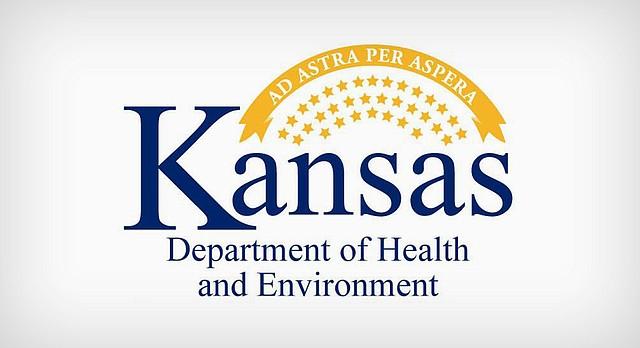Information from KDHE Communications
TOPEKA – The Kansas Department of Health and Environment (KDHE) is issuing new mandates today surrounding COVID-19, including travelers, close contacts of confirmed cases and those being tested.
KDHE is now mandating 14-day home quarantine for Kansans who have:
- Traveled to a state with known widespread community transmission (currently California, Florida, New York and Washington state) on or after March 15.
- Visited Eagle, Summit, Pitkin and Gunnison counties in Colorado in the week prior to March 15 or after.
- Traveled on a cruise ship or river cruise on or after March 15.
- People who have previously been told by Public Health to quarantine because of their cruise ship travel should finish out their quarantine.
- Traveled internationally on or after March 15.
- People who have previously been told by Public Health to quarantine because of their international travel to China, South Korea, Japan, Italy and Iran should finish out their quarantine.
- Received notification from public health officials (state or local) that you are a close contact of a laboratory-confirmed case of COVID-19. You should quarantine at home for 14 days since your last contact with the case. (A close contact is defined as someone who has been closer than 6 feet for more than 10 minutes while the patient is symptomatic.)
There is no need for returning travelers to notify KDHE about their return. Information on COVID-19 cases in the U.S. and states with community transmission can be found at www.cdc.gov/coronavirus/2019-ncov/index.html.
Home Quarantine Guidelines
Those who are under home quarantine should not attend school, work or any other setting where they are not able to maintain at about a 6-foot distance from other people.
If a person under quarantine develops symptoms of COVID-19 during their 14-day quarantine period, including a measured fever of 100.4 (F) or higher and lower respiratory symptoms like coughing or shortness of breath, they should contact their healthcare provider and tell them about their recent travel or other COVID-19 exposure.
Testing for COVID-19
Healthcare providers should evaluate exposure history and symptoms and call KDHE if COVID-19 is suspected. COVID-19 is a reportable condition in Kansas and all suspect cases should be reported by healthcare providers. COVID-19 testing requests can only be made by healthcare providers and local health departments.
In counties with known community transmission, currently Johnson County, testing will be limited to people hospitalized with symptoms consistent with COVID-19. Johnson County residents with mild symptoms should isolate at home and away from others for at least seven days after symptoms started or for 72 hours after fever is gone without the use of fever reducing medications and symptoms have significantly improved, whichever is longer. Anyone with more severe symptoms should call their healthcare provider. Individuals who have mild symptoms should not expect to be tested at this time. Testing needs to be prioritized to the sickest patients who are seriously ill and require admission to the hospital. Excessive testing of patients with minor symptoms may put too much strain on laboratories and hospital resources. Since there is no treatment currently for COVID-19 testing patients with mild illness needs to be a lower priority.
People who are currently being tested for COVID-19 should remain in home isolation, or hospital isolation if symptoms are severe enough to be hospitalized, until test results are available. If the test result is negative, isolation is no longer required. If test results are positive for COVID-19, the person must remain in isolation until released by public health.
Prevention
There is currently no vaccine to prevent COVID-19. The best way to prevent illness is to avoid spreading the virus and to avoid being exposed to the virus. The virus is thought to spread between people who are within about 6 feet of each other for at least 10 minutes through droplets from coughing and sneezing.
To reduce risk, everyone should:
- Wash hands often with soap and water for at least 20 seconds or use a hand sanitizer that contains at least 60% alcohol.
- Avoid touching eyes, nose and mouth with unwashed hands.
- Stay home if you are sick.
- Cover coughs and sneezes.
- Clean and disinfect surfaces daily.
For more information, please visit the KDHE website at www.kdheks.gov/coronavirus. KDHE has a phone bank that is staffed Monday – Friday, 8 a.m. – 7 p.m. The phone number is 1-866-534-3463 (1-866-KDHEINF). KDHE also has an email address for general inquiries, COVID-19@ks.gov. Please note these contacts are for general questions and cannot provide you with medical evaluations. If you are feeling ill, please stay home and call your healthcare provider.


